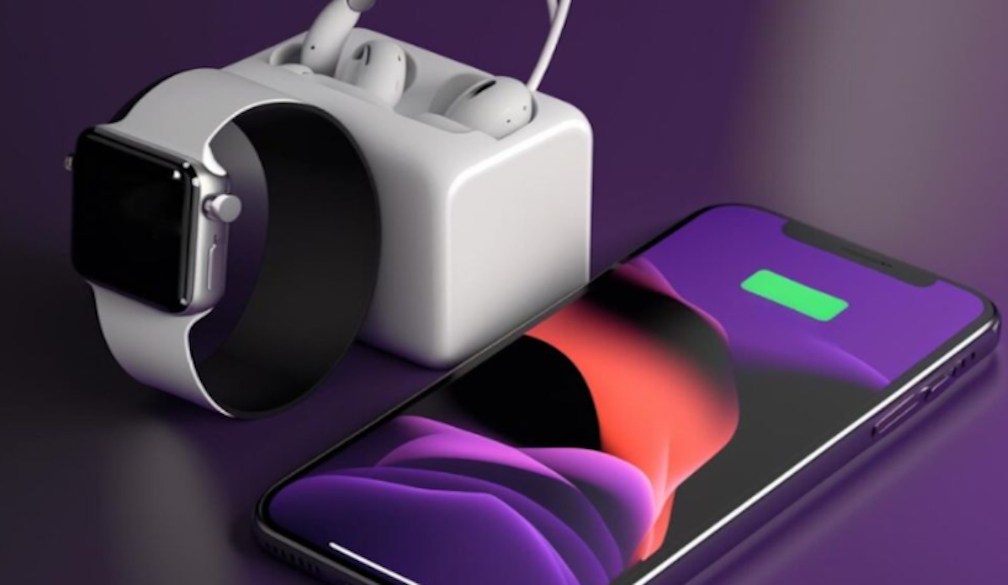Choosing the Right Charger: A Complete Guide for Every Device

Everyone relies on their devices in our digital era because these items enable us to stay connected and complete tasks as well as entertain ourselves. The choice between different chargers presents multiple possibilities, but it turns out to be challenging. Your selection of the wrong charger between many options presents the risk of delayed charging combined with a shortened battery duration and potential harm to your device.
Different chargers show varying performance levels under three main aspects, which include device compatibility, charging strength, and the utilized charging technology. This article explains different charger types alongside the best selection methods and dispels popular charging misconceptions.
Understanding Different Types of Chargers
Before buying a charger users must know about the different charger types in the market. The market provides chargers with different features which require specific compatibility options.
1. Wired Chargers
Wired chargers are the most common charging solutions. They consist of a charging adapter and a cable that connects to your device. Their efficiency depends on:
- The type of port (USB-A, USB-C, Lightning)
- The power output (measured in watts)
- The quality of the cable
2. Wireless Chargers
The technology removes cables through its ability to transfer energy with electromagnetic fields. The current wireless charging standard known as Qi exists on most smartphones and smartwatches made today.
Advantages:
- Reduces wear and tear on charging ports
- Convenient placement of the device
- Supports multiple devices (if compatible)
However, wireless chargers are usually slower than wired fast chargers and require precise alignment.
3. Fast Chargers
Fast chargers provide higher power output, reducing charging time. Popular fast-charging technologies include:
- Power Delivery (PD) uses dynamic modifications of electricity through its charging protocol.
- Through the Qualcomm Quick Charge system, it increases charging speed based on voltage regulation.
- The speed-enhancing branding technologies include SuperVOOC, along with Warp Charge and Turbo Charge.
4. Smart Chargers
Power delivery through smart chargers adjusts according to the device's requirements. Smart chargers establish a higher level of protection through their capacity to stop both overcharge situations and overheating together with short circuit risks thus surpassing traditional charger models in user ratings.
How USB-A, USB-C, and Lightning Connectors Affect Charging Speed
There are different charging ports for different gadgets:
- USB-A: An outdated charger port that does not support quick charging.
- USB-C: The current standard for the industry with higher power output and data transfer capabilities.
- Lightning: Connecter port owned by Apple, which is great for fast charging but does not have a broad scope of compatibility like USB-C.
For several devices, it is reasonable to purchase a USB-C charger with Power Delivery (PD) functionality.
How to Choose the Best Charger for Your Device
Not all devices require the same charger. Selecting the right one depends on power requirements and compatibility.
1. Smartphones
- Users should verify that their device operates with either PD or QC fast-charging standards.
- All device users that need fast charging must obtain at least an 18W output USB-C PD charger.
- The charging process of an iPhone requires users to choose an official Apple USB-C to Lightning cable.
2. Laptops
- Laptops built in the present day receive their power supply through USB-C interfaces that need between 30W and 100W of power.
- You must buy a charger that supplies the same wattage as your laptop requires since MacBook Air needs 30W while MacBook Pro requires more than 60W+.
- Running your laptop battery with a charger of a lower power rating will result in extended charging times and inferior system charging.
3. Gaming Devices
- For gaming laptops, a minimum of a 100W power adapter is often required.
- Like other devices, handheld consoles such as Switch require a PD USB charger that outputs a lower voltage of 15V.
- Since some gaming accessories such as controllers charge with USB-C and micro-USB ports, make sure to verify the compatibility.
Debunking Common Myths About Chargers
Many misconceptions about charging exist. Here are some debunked myths:
Myth 1: Using a Non-Branded Charger Damages Your Device
Professional third-party chargers from companies like Anker, Belkin, and Aukey function well, but inexpensive, inferior chargers might be dangerous. Verify safety certificates such as UL, CE, and FCC approval at all times.
Myth 2: Overnight Charging Damages the Battery
Smart device controllers incorporate technology to suspend battery charging once the battery reaches full capacity. However, immoderate heat from prolonged charging might also degrade battery life over the years. Using a first-rate charger with overcharge protection helps.
Myth 3: Higher Wattage Means Faster Charging
A device can only benefit from faster charging through higher-wattage chargers when it offers the necessary power support. A phone with 18W fast charging support cannot benefit from a 60W charger because it will still draw only the power it can handle at its maximum rate.
Myth 4: Wireless Charging is Less Efficient
The pace of wireless charging stays slower than traditional wired fast charging although Qi-certified wireless chargers now function better. The production of heat through wireless charging systems leads to negative impacts on mobile devices' battery life span.
Conclusion
An appropriate charger selection enables efficient and secure charging processes. Make sure to look into how fast a device charges together with connector type compatibility and protective features before you decide to buy it. Getting a premium charger will lead to better device performance and longer battery life.
Test your power requirements for your device and select licensed chargers that professional brands produce for the best decisions. Choosing the right charger among wired and wireless, along with speedy and smart options, provides both clean charging comfort and a continuous supply of power for your devices.

